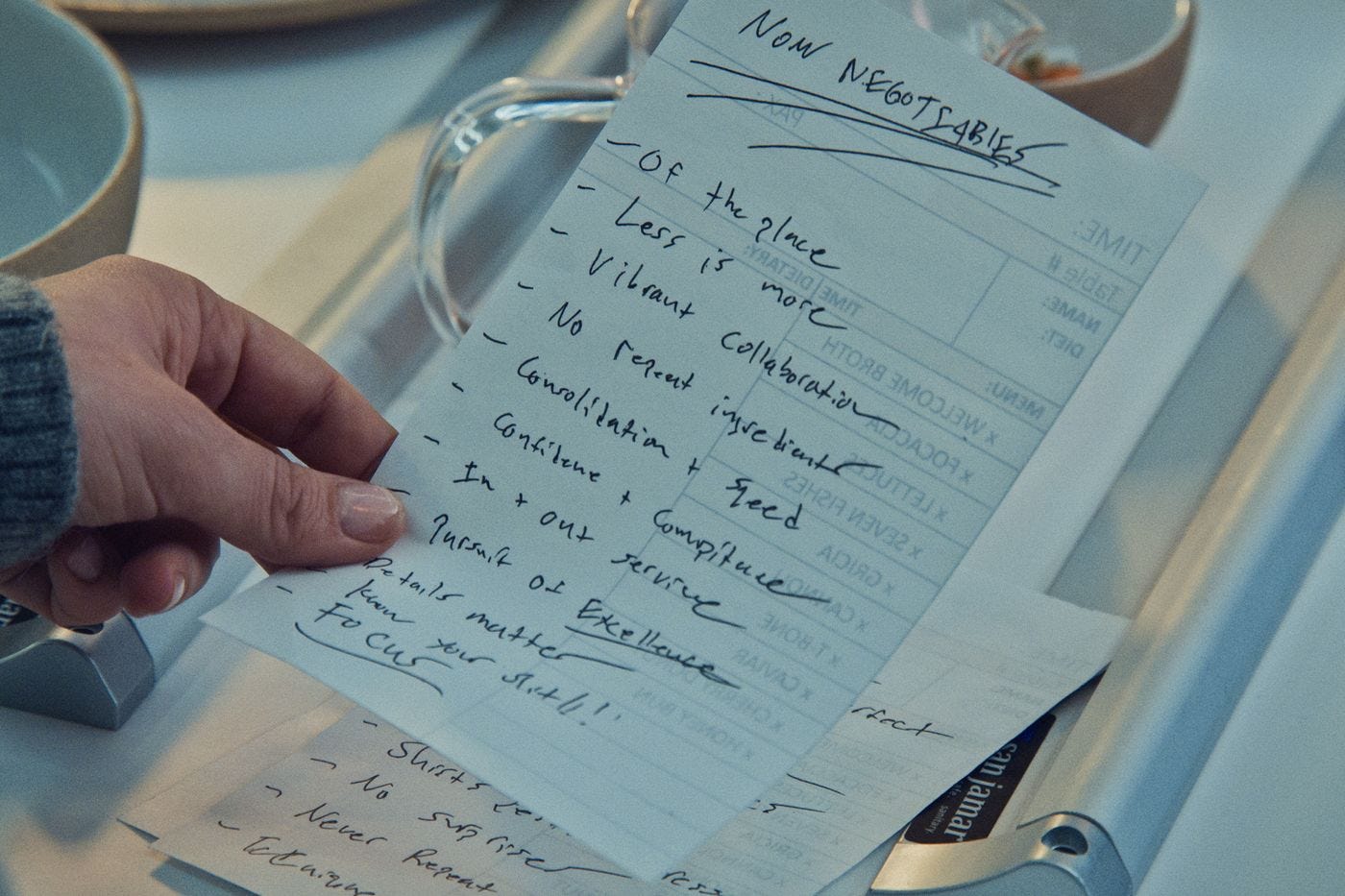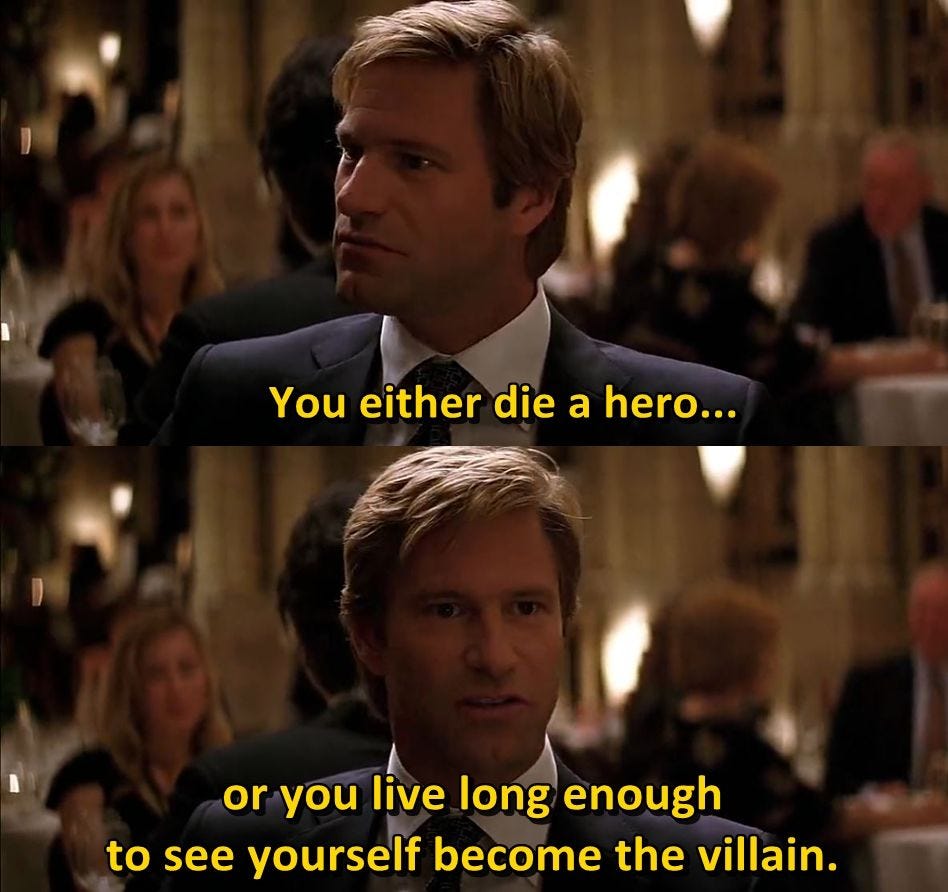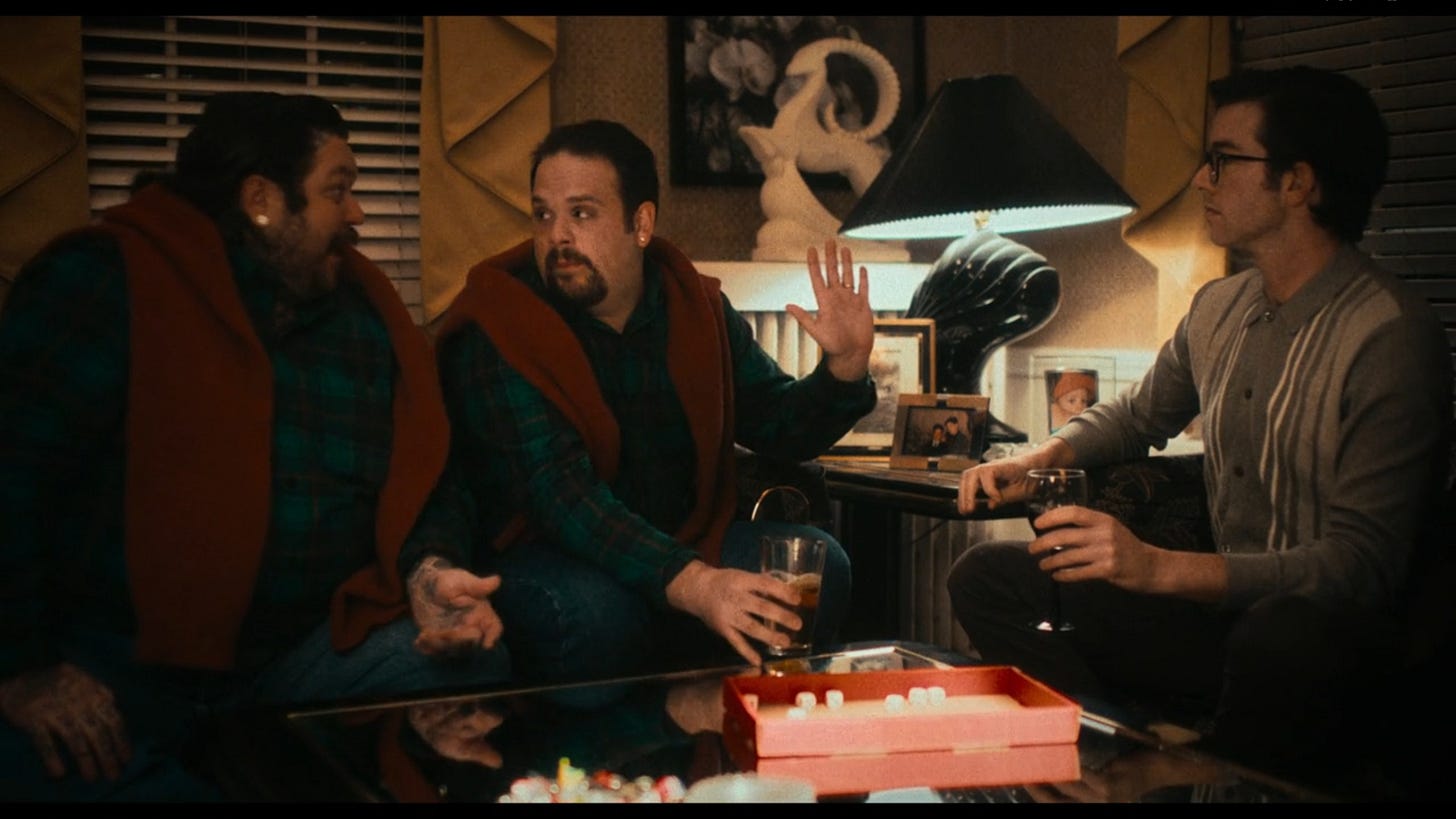You are Supposed to Hate Season 3 of The Bear
A Bold Creative Choice and the Cost of Greatness
The first two seasons of "The Bear" garner significant hype and fanfare, rivaling any recent show. This comedy-drama, centered on The Beef restaurant and Carmen Berzatto (Jeremy Allen White) and his extended family, captivates a broad audience. Season 1 becomes FX’s most-watched comedy series ever, and Season 2 ranks among the top series of 2023 across all genres.
Critics and social media do not share the same enthusiasm for Season 3, which diverges significantly in style from the previous seasons. Some claim that the series jumped the shark1 while others believe the producers had a missfire. In my view, the writers achieve precisely what they intend; today’s post will explain how.
If you haven't seen Season 3 yet, consider this your spoiler warning. For those who haven't watched the series, I suggest you stop here. Below are some other articles worth checking out, and I'll see you next week with a piece on a different topic.
How to Not Suck at Sales Part I & II
Revisiting Peter Thiel’s Zero to One Parts I & II
For those not afraid of spoilers, let’s continue:
Season 1 was great, because of the chaotic nature of the restaurant and the erratic personalities involved. Jeremy Allen’s White deadpan performance was nicely complemented by over the top portrayals of Richie (Ebon Moss-Bachrach), Sydney (Ayo Edebiri) and Matty Matheson (Neil Fak). Episode 7, “Review,” delivered an intense depiction of a kitchen struggling to keep up with their orders. The use of a continuous camera cut maintained high tension until the very end of the episode. While not the first series to employ this technique, The Bear showcased one of the best applications in recent TV memory. The only other episode that could rival it was “Connor's Wedding” from Succession (Season 4 episode 3). If you are a Succession fan, check this out. Season 1 of The Bear definitely passed the fun and watchable threshold.
As incredible as the debut was, the second season took things to a whole over level and separated the series from many other good TV shows. Particularly episodes 6, Fishes and 7, Forks, showed the series had a depth few could rival. Fishes captured the essence complex family dynamics and personal traumas with raw realism. Hopefully viewers cannot relate too closely with the Berzatto holiday gathering, yet the episode continued to build tension, bringing the stakes to an unbelievable climax to end with Donna driving her car through their house.
As awe inspiring Fishes was, the subsequent episode Forks was a masterclass in character redemption. In a single episode, The Bear took Riche from angry, detestable and irredeemable outcast to loveable underdog. There have been some impressive redemption arcs in the history of TV such as Andy Bernard (The Office) or Jamie Lannister (Game of Thrones) but these transpired over many episodes or seasons; the Bear did this in one episode.
After a stretch where Carm appears to finally have found some sense of peace with the restaurant and his relationship with Claire, he gets locked in a freezer for the duration of a service. The season ends with Carm’s anger and angst causing him to lash out at Richie, Claire and everyone else around him. Carmen’s interpretation of the events, was that his pursuit of a life outside of the restaurant caused him to lack focus, allowing standards to drop leading to him being stuck inside the freezer.
Carmen took from this that unless he was ready to dedicate everything to The Beef, it would never achieve the heights that he wants for it. A Michelin star. This meant he had to abandon anything that prevented him from achieve this goal. His girlfriend Claire, had to go. Having fun at the restaurant, no more. The writers of The Bear, seemed to have had a similar realization.
Season 3 starts with Carm establishing a list of non-negotiables. Among them were that the menu had to change daily, not repeat ingredients, they had to respect tradition but innovate. Carm believed, for The Beef to reach the next level, they had to abandon what they were previously doing and reinvent themselves.
This is not just what Carm wanted for the restaurant, but also the writers telling us what to expect from the season. Each episode has a different format and chose to abandon what worked in seasons 1 and 2. Each episode is shot differently, with a mixed tone not employed in the earlier seasons, that is less fun. Just like Carm needs to dedicate everything and suffer to make the restaurant a success, the writers decided viewers needed to do the same to reap rewards of watching a great show.
What season 3 is really trying to explore is if the cost of greatness is worth the sacrifice? The way it is depicted it’s not. Carm is fighting demons from his family and chef mentors. In season 1 and 2, he seemed to have abandoned this ambition, season 3 he has dived completely back in and has become more emboldened than ever.
Season 3 was very hard to watch because the writers wanted it to be. Carm Berzotto believes he needs to suffer for the restaurant to be successful, the writers decided the audience need to participate in this sufferance to reap the benefits of watching a great show. This is why much of the season explored much of the turmoil within The Bear staff life outside the restaurant. It’s not always light, fun and a straight line to success. Greatness comes at a cost. It hurts, it’s uncomfortable at times. Such is life. This does not make the creators of The Bear popular in the interim, but they believe that this is their cost of greatness. Even if this means alienating their audience.
Basketball legend, Kobe Bryant (RIP) came to a similar conclusion after losing to the Boston Celtics in 2008. He understood that leadership sometimes meant being hated by your teammates in order to get the performance you need out of them. He expressed this in a Facebook post in October 2012.
“There comes a point when one must make a decision. Are YOU willing to do what it takes to push the right buttons to elevate those around you? If the answer is YES, are you willing to push the right buttons even if it means being perceived as the villain? Here's where the true responsibility of being a leader lies.” Kobe Bryant - 2012
The writers of "The Bear" embraced the role of the villain, understanding that for the show to achieve greatness, viewers must feel the perils of pursuing it. Working in a restaurant is far from glamorous. For every Gordon Ramsay or Daniel Boulud, there are thousands of aspiring chefs toiling endlessly in high-pressure environments, their livelihoods hinging on a single review or social media post. Beyond the kitchen, the staff faces stress, uncertainty, and worry in their personal lives. The writers wanted to remind us of this reality.
Season 3 felt off because it was. The showrunners ventured into areas they had previously avoided, pushing boundaries not necessarily because they believed it was the right thing to do, but because shows of this stature often do. Just as Carmen experimented with different menu items, the series explored traditional television methods. In the first two seasons, they skillfully avoided stunt casting2, ensuring guest stars played meaningful roles, as seen with John Mulaney and Jamie Lee Curtis in the "Fishes" episode. In Season 3, they featured Josh Hartnett and John Cena, whose screen time and attention seemed disproportionate to their impact on the story.
The decision to stunt cast was consistent with the show's list of non-negotiables. Now that the audience has seen what happened when they stunt cast, The Bear can now move forward without it. This made the show worse in the short term, it was necessary to explore these choices to elevate the series to new heights.
After the second season, the writers felt the need to attempt something audacious to propel the show forward, taking a significant risk. Ironically, within the restaurant, the only part of the business that was making money, was the sandwich counter. Selling the old recipe. Even the patrons of the main restaurant were not on board with the changes as the staff would have liked. Rather than the show sticking with the successful formula, they chose to sacrifice a season to allow the show to live up to its maximum potential.
This required leadership and the willingness to become the villain. Though the audience might not realize it now, those who stick around will one day appreciate "The Bear" for these bold decisions.
I look forward to Season 4.
"Jump the shark" is a phrase used to describe the moment when a popular television show begins to decline in quality, often due to a gimmick or outlandish plot twist. The term originates from a specific episode of the TV show "Happy Days," where one of the main characters, Fonzie, literally jumps over a shark while water skiing. This moment is widely regarded as the point when the show started to lose its original appeal and creativity.
Over time, the phrase has expanded beyond television to describe any situation in which something that was once popular or successful starts to decline due to a desperate or over-the-top effort to maintain interest.
Stunt casting is when a TV show or movie casts a big-name celebrity or a well-known personality in a guest role, primarily to attract more viewers or generate buzz, rather than to serve the narrative or character development. The focus is more on the publicity and the draw of the celebrity's name than on giving them a substantial or meaningful part in the episode.







